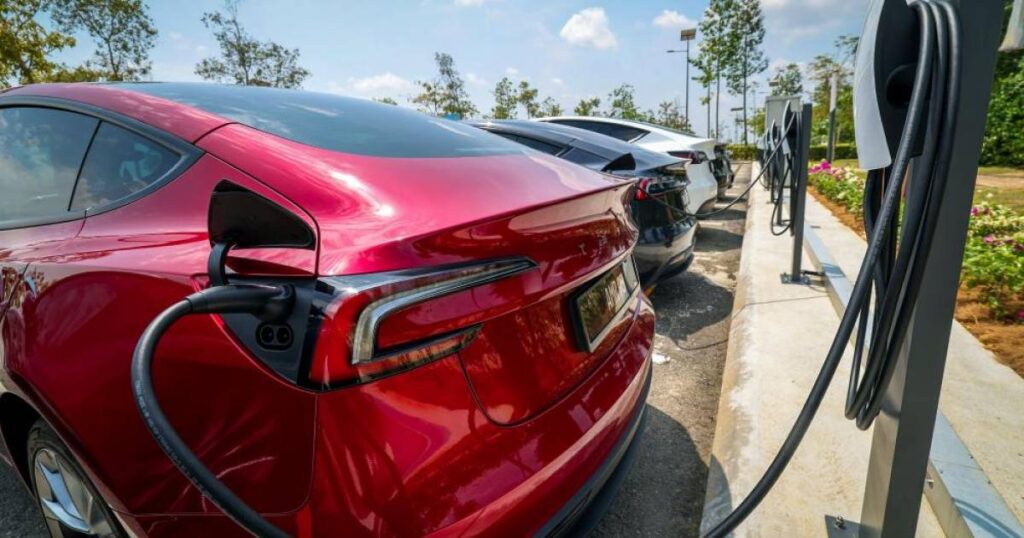kuala lumpurAnalysts say the adoption of electric vehicles (EVs) in ASEAN will continue to grow due to favorable regulations, the launch of new low-cost models by Chinese EV manufacturers, the region's large car production base and strong demand. will also increase.
Maybank Investment Bank Bird (Maybank IB) reports that sales of fully electric (FE) vehicles have quadrupled to 141,095 units from six markets, with Thailand and Vietnam leading the way. The company announced that it will account for 77% of sales in 2023, making it the top two countries.
“In Indonesia, 17,062 FE vehicles were sold (+65% compared to the previous year), and in Malaysia, 10,159 units were sold (+286% compared to the previous year).”
“Overall, FE's share in vehicle sales was 1.6% in 2022 compared to 6.2% in the ASEAN-6 market in 2023.”
Also read: Southeast Asia becomes Tesla's expansion priority
“EV penetration in ASEAN is expected to further increase as more low-cost EV models are launched in 2024 and 2025. Another driver is direct subsidies to buyers and charging points. ,” the bank said in a research note today.
Maybank IB said improved regulation and cheaper EVs are the keys to EV adoption, which is clearly reflected in the EV adoption in Thailand.
“Thailand is offering cash subsidies to EV buyers and reducing sales and import taxes for original equipment manufacturers (OEMs), and the Thai government is also encouraging local manufacturing.
“Indonesia is proposing tariff cuts and promoting domestic manufacturing. Another way to boost EV sales is to cut subsidies and raise gasoline prices, which Malaysia is looking to adopt.” “Finally, cheap EVs, which Chinese OEMs excel at, will make it difficult for Japanese/Korean OEMs to compete in the ASEAN market.”
Also read: Major EV charging operators in Singapore and Malaysia sign roaming agreement
Globally, electric vehicle sales will reach 14 million units in 2023, an increase of 34% from the previous year, accounting for 19% of total vehicle sales.
“Forecasts predict that EV vehicle sales growth will slow to 22% year-on-year in 2024 due to saturation in China and Europe, and uncertainty in the United States ahead of the November presidential election and policy continuation. The weak sales of major EV companies in the first quarter of this year confirms this concern.”

